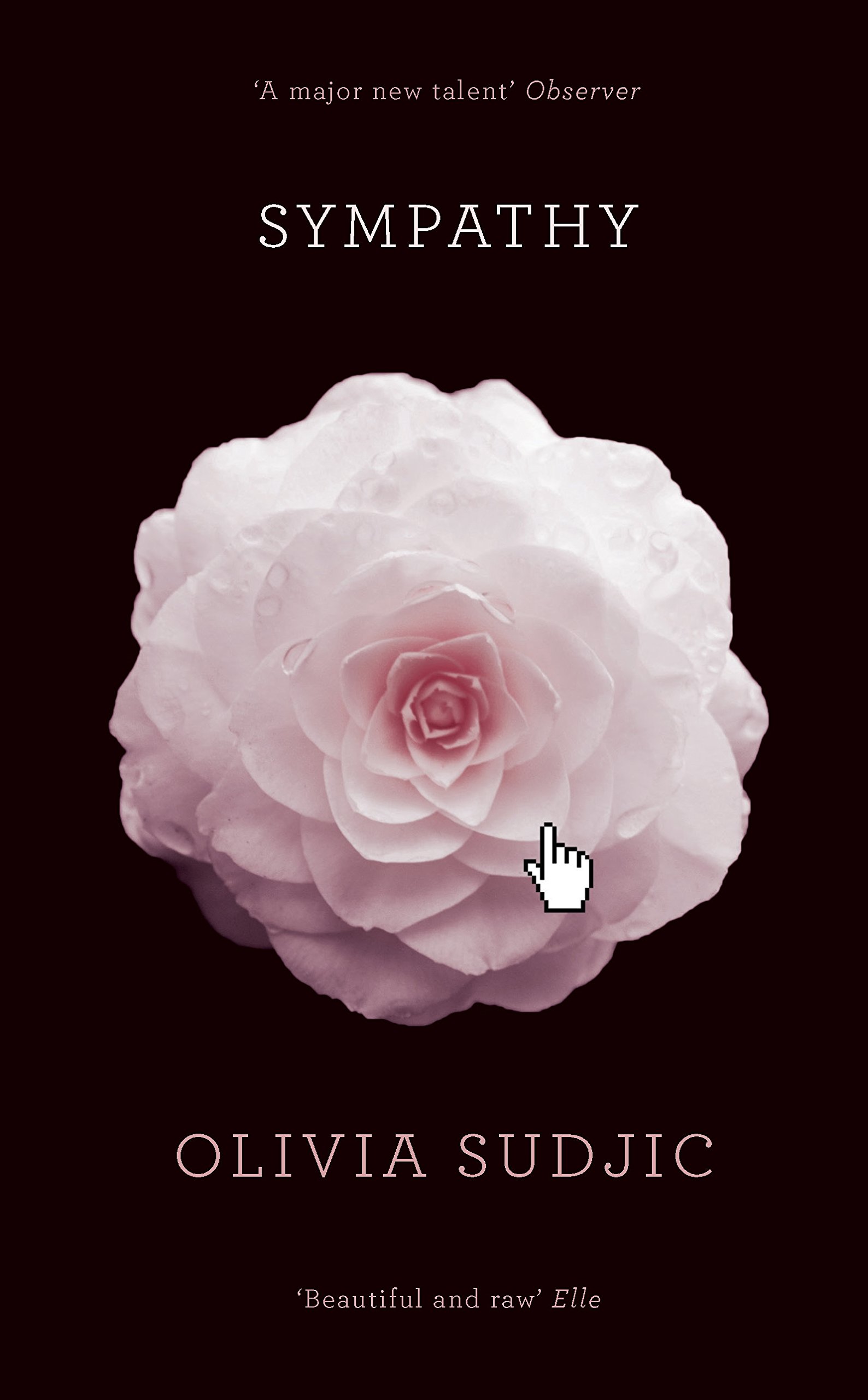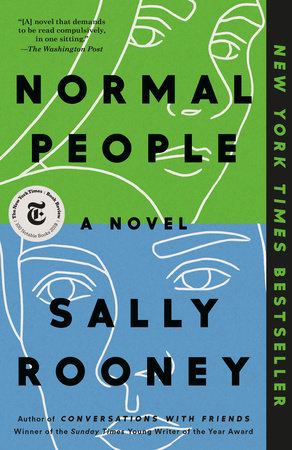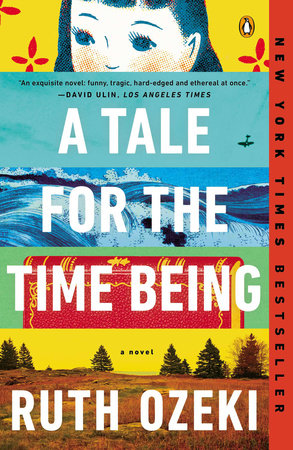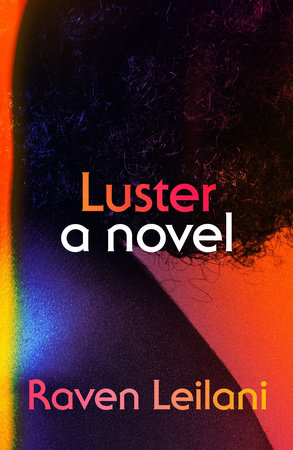When the internet first became part of human life, it began to appear in literature as a source of paranoid anxiety (think Pynchon). For “digital natives” who have grown up online, though, the internet is no longer really alarming (even when it should be)—it’s just a fact of life. As more and more of life takes place online instead of IRL, it’s not surprising that the internet is transcending that original paranoia, and moving into a terrain of alienation, acceptance, resignation, possibility, or simple indifference.
All of which, I think, is seriously fascinating. We now devote windows of time to scrolling, watch people become brands, bond with strangers online, or tragicomically Google things like medical symptoms or “how to console friend after breakup.” And fiction is catching up with us. Last February, two new releases, Patricia Lockwood’s No One Is Talking About This and Lauren Oyler’s Fake Accounts, gave rise to discussions about what constitutes an internet novel. Because the internet is our real life, though, the genre of “internet novel” is actually much larger than these explicitly Very Online new releases. Whether you’re completely new to the notion of internet fiction or seeking more perspectives after reading Lockwood and Oyler, the books below offer an exciting range of strategies for representing the present literary moment.
Grown Ups by Emma Jane Unsworth
Jenny McLaine’s life is a mess, and she knows it. Exasperated by her lukewarm and precarious career as a columnist, sharing her London house with unamused lodgers since her ex moved out, failing at friendship, and ambushed by her mother, Jenny feels cornered into inaction—all she does is idolize (read: stalk) flawless women on Instagram. Grown Ups is the hilarious and heartbreaking account of what happens when she begins to lose control. Bonus points for the all-around pissed off energy.

Sabrina by Nick Drnaso
This graphic novel begins when a woman called Sabrina disappears in Chicago, launching her boyfriend Teddy and sister Sandra into media scrutiny. When footage of Sabrina’s murder is shared online, conspiracy theories that warp events beyond belief complicate Teddy and Sandra’s grief and destabilize the truth. In this bleak story of numbness and anesthesia mediated by screens, the real and the surreal bleed into each other.

Shitstorm by Fernando Sdrigotti
Shitstorm is a novelette about, well, the various shitstorms that happen as a regular part of the news cycle. An excruciatingly accurate satire of the repeated virality-outrage-oblivion model, it traces a spiraling series of events that spark online controversies. The narrative begins with an American dentist killing a protected lion in Africa, but soon enough the world’s attention has moved on to another crisis of the moment, and the next, and the next, in a relentless cycle.
And of course all of us are now policing people’s reactions to an atrocity, as is the tradition these days. Why do we care so much about London when last week bombs went off in x or y? ask some of us. Why don’t people care about London when they cared about the bombs that went off last week in x or y? Why do we only care about terrorist attacks when they happen at our doorstep? Why do we care about all terrorist attacks except for those that happen here?

Sympathy by Olivia Sudjic
While visiting New York, Alice Hare becomes obsessed, via Instagram, with Mizuko Himura, a Japanese writer living in the city. Noting the parallels between them (and fashioning some where needed), Alice is increasingly convinced that she and Mizuko are “internet twins,” and so arranges a not entirely serendipitous chance meeting. Reflecting the web’s overload of information, this unsettling and complex novel shows the online self at its most alienated.
When we met, we were both online constantly. In fact, I would say I was online constantly because she was, and I was monitoring her usage. For her, the Internet was primarily a tool of self-promotion and reinforcement for her multiple selves while for me it became a tool designed for the sole purpose of observing her.

Normal People by Sally Rooney
Normal People stars Marianne and Connell, two Irish teenagers navigating social and class tensions. Charting the shifting dynamic between the two as they graduate from school and move to Dublin for university, this taciturn novel examines all the things that pull them together and draw them apart. While their new lives unfold, the internet remains a constant and natural presence as they exchange texts and emails—here, an awareness of surveillance is present not as a source of paranoia, but as an amusing fact: “I feel like the NSA agent reading these emails has the wrong impression of us,” observes Marianne.

A Tale for the Time Being by Ruth Ozeki
This is a warm-hearted, metafictional novel that hovers between two narrative planes: one follows an author named Ruth, living in British Columbia, and the second a Japanese schoolgirl named Nao. The two are connected when Ruth discovers Nao’s diary beached near her home, and suspects it was brought to her by the movement of ocean gyres in the wake of the 2011 tsunami. This non-linear, formally flexible book involves emails, diary entries, letters, and Google searches. In the world of A Tale for the Time Being, the internet is simply one of many things that connect human beings in an already global whirlpool of flotsam and jetsam.

Luster by Raven Leilani
Luster is not self-conscious about involving the internet in its narrative—the web is there as an unquestioned part of contemporary reality. The protagonist, a young Black woman named Edie, meets Eric online. According to his dating profile, he’s in an open marriage; he’s 23 years older than her; white; an archivist. What starts as an episodic and feverish sexual relationship assumes a new momentum when Edie, suddenly unemployed, is forced to move in with Eric. Touching on racial tensions, class, and loneliness, Luster is a magnetic novel about the uncertainty of youth, firmly rooted in the technological wackiness of the present.
In between these texts, I want to ask him what he’s eating. I want to ask him why he is awake. But then I worry he’ll remember I’m on the other end and the texts will stop. This is the way it was when our relationship only existed online.

Stone Arabia by Dana Spiotta
Dana Spiotta’s Stone Arabia is a novel concerned with the act of chronicling. It takes the form of a “counter-chronicle” written by Denise, whose musician brother, Nick, has always documented his (often imaginary) career as an artistic and performance project. Denise’s acute self-consciousness makes for an unreliable narrative steeped in identity anxiety. Her inability to knowingly contribute to the all-chronicling web will ring true to anyone who’s ever discovered scraps of themselves on Wayback Machine (blog you wrote when you were 13, anyone?)—and anyone who’s ever felt a little existential about the way they present themselves online.
I just couldn’t say something spontaneous and pithy and then have it hang there for all eternity. Those are opposite pulls—eternity and pithy—and if I thought at all about what to say, it was even worse.”

How the Light Gets In by Clare Fisher
How the Light Gets In, like several of the books above, does not explicitly thematize life on the internet. This collection of flash fiction offers a vision of modern life in Britain—and some of that happens to take place online. In “blip blip blip,” Skype starts buffering mid-call, hurtling lost meaning between two screens. In “midday in my mind,” the buzz of a phone interrupts the narrator’s thoughts of romantic joy, prompting them to conclude: “I’ve found the answer to modern life—the way to be everywhere at once. Everything would be much easier, for you, for me, for us, if I just turned into your phone.”
The post 9 Books About the Reality of Life on the Internet appeared first on Electric Literature.










